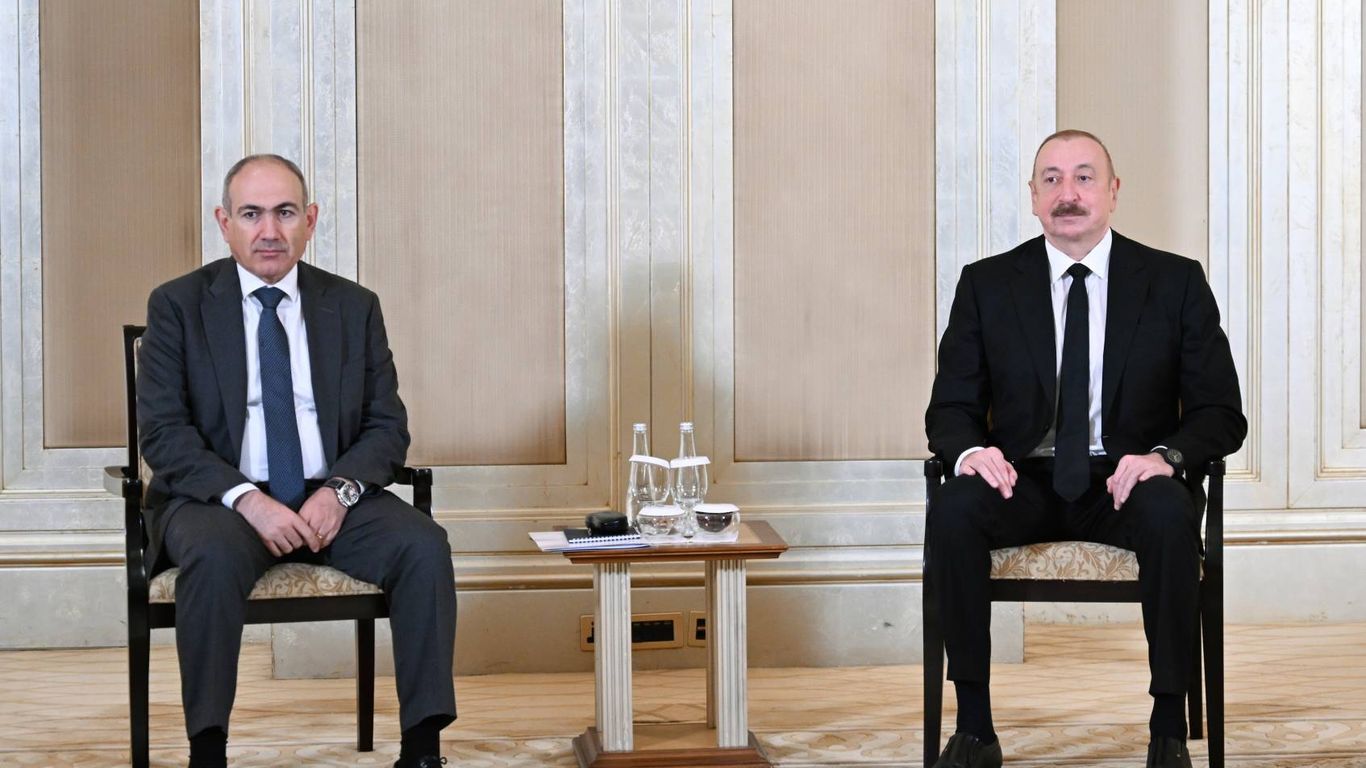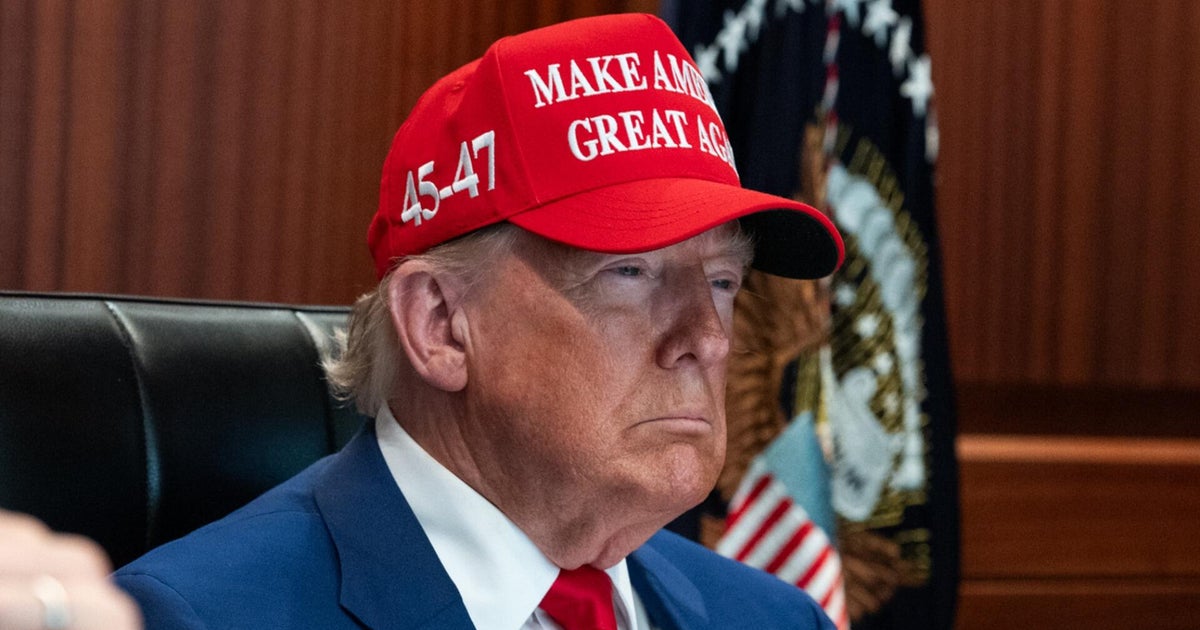Trump to Oversee Armenia-Azerbaijan Peace Accord

Introduction
In a surprising turn of events, President Trump will now be overseeing the peace accord between Armenia and Azerbaijan, which includes a crucial corridor. This is yet another opportunity for Trump to showcase himself as the ultimate global peacemaker.
Key Details
The peace agreement between Armenia and Azerbaijan has been a long-standing issue, with both sides claiming ownership over the Nagorno-Karabakh region. This has led to several violent conflicts and has been a major point of contention between the two countries. The inclusion of the key corridor in the peace accord is a significant step towards resolving this conflict, and Trump's involvement is a clear indication of his diplomatic efforts.
Impact
With the recent normalization of relations between Israel and several Arab countries, Trump has been actively promoting himself as a peacemaker in the global arena. His involvement in this peace accord will only add to his image and could potentially have a positive impact on his political career. However, it remains to be seen how this peace accord will play out and if it will truly bring lasting peace to the region.
About the People Mentioned
Trump
Donald John Trump, born June 14, 1946, in Queens, New York, is an American businessman, media personality, and politician who has served as both the 45th and 47th President of the United States[1][3][5]. He is the only president since Grover Cleveland to be elected to two non-consecutive terms, winning the 2016 and 2024 elections and serving from 2017 to 2021, and again from 2025 onward[2][3][5]. Trump’s political rise marked a significant shift in American politics, as he positioned himself as a political outsider and won the Republican nomination in 2016, defeating Democrat Hillary Clinton in the general election[1][5][6]. He was re-elected in 2024, defeating Vice President Kamala Harris, with Ohio Senator JD Vance as his running mate[5]. Before entering politics, Trump was a prominent real estate developer, inheriting and expanding his family’s business into the Trump Organization, which includes hotels, casinos, golf courses, and branded products worldwide[1][3][6]. He gained broader fame as the host of the reality TV show *The Apprentice* from 2004 to 2015[1][5][6]. Trump has authored several books, including the best-selling *The Art of the Deal* (1987)[5][6]. During his first term, Trump pursued a conservative agenda, including significant tax cuts, deregulation, border security measures, and a hardline stance on immigration[1][4]. He appointed three Supreme Court justices and withdrew the U.S. from several international agreements, including the Paris Climate Accord and the Iran nuclear deal, while initiating a trade war with China[1]. His administration’s response to the COVID-19 pandemic was marked by mixed messaging and clashes with health officials[1]. Trump was impeached twice—in 2019 for abuse of power and obstruction of Congress, and in 2021 for incitement of insurrection following the January 6 Capitol attack; he was acquitted by the Senate both times[1]. After losing the 2020 election to Joe Biden, Trump’s refusal to concede and claims of election fraud culminated in the Capitol riot and ongoing legal challenges[1][3]. Trump’s return to the presidency in 2025, at age 78, makes him the oldest person ever inaugurated for a second term[2]. His current administration has pledged to continue his previous policies, emphasizing border security, economic growth, and a rejection of what he terms “extremist” policies from the political left[4]. Trump remains a polarizing figure, with a strong base of support and equally vocal opposition, and his influence on the Republican Party and American politics endures[2][3].
About the Organizations Mentioned
Armenia
## Comprehensive Summary: Armenia **Armenia** is a sovereign state in the South Caucasus, recognized for its ancient heritage, vibrant culture, and dynamic economic evolution. It gained independence from the Soviet Union in 1991 and has since navigated a complex geopolitical landscape, marked by conflicts, political transformation, and ambitious reforms[5]. As of 2025, Armenia has a population of about 2.65 million and a GDP of $25.8 billion, with a GDP per capita of $8,500[2][6]. The capital is Yerevan, and the country operates as a unitary multiparty republic with a parliamentary system[6]. ## Key Sectors and Economic Profile Armenia’s economy is anchored in mining—especially copper, gold, zinc, and lead—contributing significantly to exports[5]. Other major exports include chemicals, machinery, textiles, wine, and brandy[6]. However, Armenia remains heavily dependent on imports for energy and consumer goods, with Russia as its largest trading partner[6]. The country faces persistent trade deficits, exacerbated by closed borders with Azerbaijan and Turkey, limiting regional connectivity and market access[5][6]. Despite these constraints, Armenia has shown economic resilience, particularly after the shocks of the COVID-19 pandemic and the 2023 Nagorno-Karabakh conflict, which triggered a large influx of refugees and increased fiscal pressures[2][10]. ## Recent Developments and Reforms Armenia’s 2018 Velvet Revolution ushered in a period of democratic reform and anti-corruption efforts[2]. In March 2025, the Armenian parliament approved initiating the process to join the European Union, signaling a strategic foreign policy shift toward greater integration with Europe[2]. The government is pursuing reforms in education, healthcare, justice, and social protection to enhance human capital and attract investment[2]. Inflation has been managed effectively, with the Central Bank cutting rates to 6.75
Azerbaijan
Azerbaijan is a sovereign country located at the crossroads of Western Asia and Eastern Europe, known for its strategic economic and geopolitical position rather than being an "organization." It has a significant economy primarily driven by hydrocarbons but is actively pursuing diversification and modernization, especially in business and technology sectors. Over the last decade, Azerbaijan has implemented comprehensive reforms to strengthen economic resilience following the 2015 oil price crash, which drastically impacted its energy-dependent economy. These reforms include fiscal discipline, currency management, institutional improvements, and efforts to diversify beyond oil and gas[5]. The government, led by President Ilham Aliyev since 2003, controls much of the political and economic framework, with state-owned enterprises and large conglomerates playing a dominant role. Despite political challenges, including human rights concerns and restricted freedoms for civil society, Azerbaijan is making strides in economic reforms and innovation[7][6]. Key achievements include rapid economic growth in the early 21st century, significant poverty reduction, and recovery from pandemic-related setbacks. The World Bank and European Bank for Reconstruction and Development (EBRD) support Azerbaijan’s strategy focusing on economic diversification, green energy transition, and improved governance. The country aims to harness its renewable energy potential and upgrade infrastructure, emphasizing private sector competitiveness and regional connectivity[1][3]. Azerbaijan’s travel and tourism sector is booming, contributing over 8% to GDP in 2025 and supporting nearly 10% of national employment, signaling robust post-pandemic recovery and growth potential in services and technology-driven industries[2]. In innovation, Azerbaijan ranks 94th globally in the 2025 Global Innovation Index, reflecting ongoing challenges but also highlighting areas for technological advancement[8]. Hosting COP29 in 2024 underscores its commitment to climate initiatives, despite ongoing political and social issues[1][6]. Overall, Azerbaijan represents a complex case of an energy-rich nation transitioning towards a more diversified, green, and digital economy while navigating political an


















